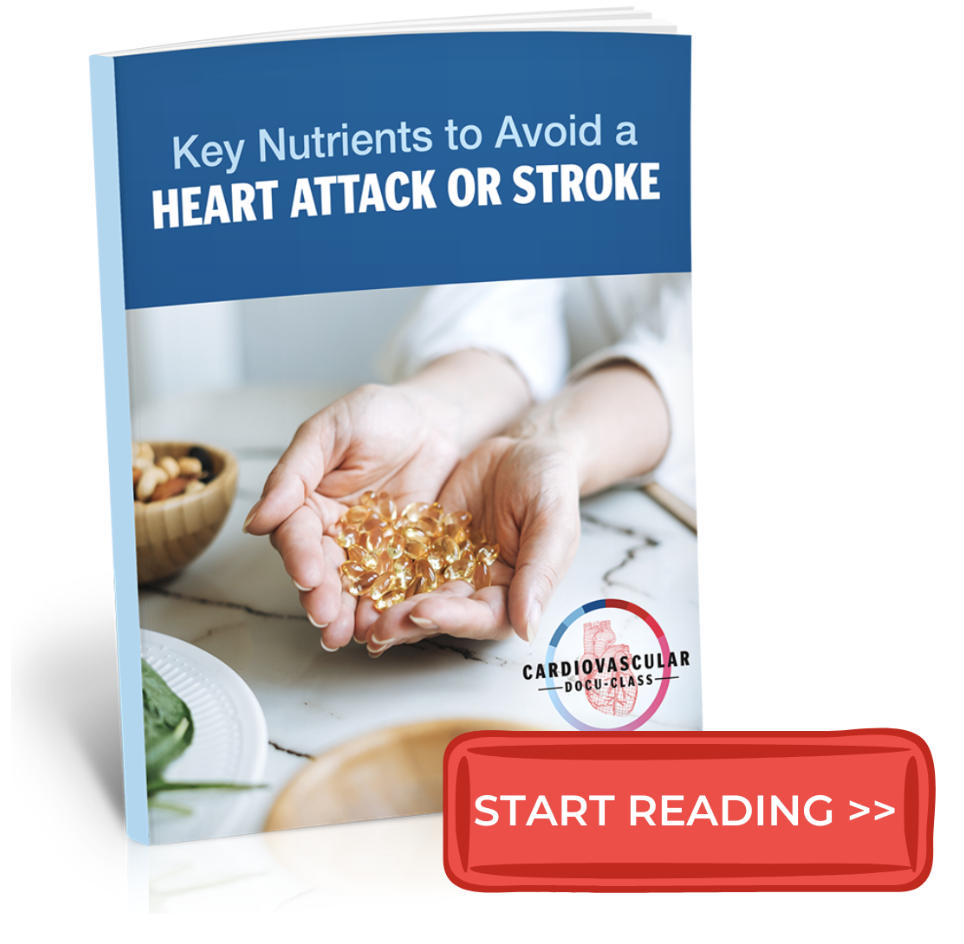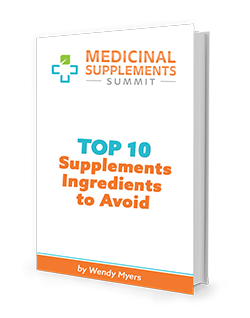Transcript
Last session you were supposed to attempt a one week sugar detox, just to try it on for size. Were you able to do it? Were you able to get past your cravings the first few days and keep going? You can do ANYTHING for a week. We went over a few facts about how fruit surprisingly contains a lot of sugar. Were you able to reduce this too? Good for you if you were able to make these very important changes to your diet! Reducing sugar is possibly the single most important thing you can do to improve your health and prevent disease.
Let’s get on with today’s session. Today we’re going to go over:
- Why You Need to Supplement
- Synthetic vs. Natural Vitamins
- Best Multivitamins
- Testing for Nutrient Deficiencies
Why You Need to Supplement
I cannot stress enough why you need to take vitamin and mineral supplements. Our modern food supply is severely deficient in nutrients, mainly minerals. In fact, a head of broccoli grown today has 20% of the mineral content that it contained in the 1920’s. This is due to many factors:
1) You are born nutrient depleted and toxic. Even if one eats a perfect diet of organic food, we are born with the nutritional deficiencies and heavy metal and chemical toxicity of our mothers. They are passed from mother to child through the placenta
2) Soil is depleted. Many soils are low in zinc, manganese, chromium, molybdenum, calcium and magnesium. No matter what diet you eat, you cannot obtain all the nutrients you need from food.
3) High-yield crops are deficient in certain nutrients. Ten times the amount of wheat is grown on the same land as was grown 100 years ago. Today’s wheat contains about 6% protein whereas 100 years ago it contained 12-14%. Trace mineral levels are similarly much lower due to high-yield farming methods.
4) Modern fertilizers lack trace elements. One hundred years ago, manure was used for fertilizer. Today, superphosphate fertilizers are used but contain mainly nitrogen, potassium and phosphorus, but are deficient in the trace elements found in manure. This has contributed greatly to depletion of the soil and crop minerals. Organically grown food is generally more nutrient-rich because it is grown on better quality soil with proper farming methods and fertilization, but this is not always the case.
5) Pesticides deplete soils. Pesticides kill soil microorganisms that are needed to make minerals and other nutrients available to plants. The result is lower nutrient content. Many pesticides are deadly chemicals that severely tax the human system. Many contain lead, arsenic and other toxic metals that slowly accumulate in the body unless one detoxifies from them. Our laws currently allow sewage and factory sludge to be sold as fertilizer that contain significant amounts of toxic metals. These add greatly to our toxic metal burden and require extra nutrients to help remove them from the body.
6) Long-distance transportation. Many foods are grown thousands of miles from where they are purchased. On average, they spend a week in transit to reach you. Because of this, produce is picked before it is fully ripe, preventing maximum nutrient potential. The minute food is picked, nutrient levels begin to diminish.
7) Food processing drastically reduces nutrient content. Refining of wheat to make white flour removes 80% of its magnesium, 70-80% of its zinc, 87% of its chromium, 88% of its manganese and 50% of its cobalt. Refining sugar cane to make white sugar removes 99% of its magnesium and 93% of its chromium. Polishing rice removes 75% of its zinc and chromium. Even foods that are in whole grain form still suffer from nutrient deficiency if they are processed, boxed, shipped, and stored for any significant period of time. Frozen foods are nutritionally better but not as good as fresh vegetables. It’s always best to eat foods as close to their original, minimally processed form as possible. For instance, eat a fresh strawberry, not a dried one.
8) Food additives deplete nutrients. Thousands of artificial flavors, colors, flavor enhancers, dough conditioners, and preservatives are added to foods. While some are harmless, many are toxic and deplete the body of nutrients. For example, EDTA added to some frozen vegetables to preserve the color of the vegetable does so by removing vital minerals from the vegetable so it does not “tarnish”.
9) Weakened digestion. One result of eating refined, low-quality food with hundreds of food additives is that most people’s digestion is impaired. This further impairs nutrient absorption and increases nutritional needs. Additionally, eating a lot of sugar and wheat flour depletes your body of vitamin and minerals.
10) Stressful lifestyles deplete many nutrients including calcium, magnesium and zinc. Zinc begins to be eliminated from the body within minutes of a stressful situation. Stress causes excessive sympathetic nervous system activity, which reduces digestive strength. This, in turn, reduces nutrient absorption even further. Thus, anyone under stress will need even more nutrients than someone that lives a very peaceful existence.
Synthetic vs. Natural Vitamins
There is a big debate out there whether you should be taking natural or synthetic vitamins. Previously, I had written a blog post trying to convince people to avoid synthetic vitamins, but I’ve changed my position on this issue. While food-based vitamins sound like a really good idea, many people have problems with food-based vitamins. There are a lot of ingredients in them that cause some people problems. I personally am taking synthetic vitamins
Let’s break down some of the problems with food-based vitamins:
1) Food-based supplements usually contain synthetic vitamins. Some claim to be all natural, but use yeast or algae or other food as a base and simply add synthetic vitamins to this ‘food’ base. The ones I recommend do not use this loophole and are high quality, but this is something to watch out for. For instance, the Whole Foods Brand is not a true food-based vitamin and uses algae as their base with synthetic vitamins added to the product. This is the norm rather than the exception with food-based vitamins.
2) Food-based Vitamins can also be Isolated. While some food-based supplements are pure whole foods, many are not. For example, a food-based chromium made from yeast is still an extract. This same chromium can be put into a synthetic or a food-based supplement. Even a food-based vitamin C is extracted or isolated from a plant such as the acerola cherry. In some cases, the entire food is served, but usually not. So be careful with the word “isolated”, since it could apply to both food-based and synthesized products. As an example, synthesized vitamin C works excellently as an anti-oxidant. It also helps rebuild tissue, chelate heavy metals and can perform hundreds of other functions in the body. The same is true of synthesized B-complex, isolated natural vitamin E, chelated minerals and others.
3) Higher cost. Food-based vitamins are almost always more costly than synthetics. It is much more costly to manufacture food-based supplements. Food-based supplements can be far more costly because more pills are needed to achieve the same dose.
4) Dosages are too low in food-based products. More product is needed to obtain the same dosage in most cases. Food-based programs are less convenient due to the larger number of tablets or capsules required. Even though a bottle contains 90 tablets, you will likely need to take 4-8 or more per day of a food-based vitamin than to get the same dosage you need with a synthetic vitamin in 2-4 tablets a day. This means that many more tablets must be given, rendering supplementation awkward or even impossible for some people.
5) Sensitivities to Foods or Fillers in food-based products. One food-based vitamin company that sells to many chiropractors claims their products are quite superior to all others. However, they put oat flour in most of the tablets, perhaps as a binding agent or filler. The problem is that many people are sensitive to all gluten-containing foods and products. Food-based products can contain all kinds of different foods to which many could have allergies or sensitivities. As a result, food-based products can cause mild to severe reactions, while the so-called isolated, synthetic nutrient products would not cause such a problem and work far better for sensitive people. People vary in their tolerance to all supplements, as well as to foods. To say that one is better than another is always a generalization that is untrue.
6) Inexact dosages of desired nutrients and undesirable nutrients that are in the food-based products pose problems. When combined in a food or even an herbal product, one is getting the nutrient, but also getting extra nutrients that often counteract or antagonize the desired nutrient.
Important nutrients may be omitted or others included because that is the only way to approximate the correct nutrients. For example, suppose we wish to give 25 mg of zinc to a person. In a food-based product, the zinc will be combined in a food or herbal form that most likely contains a little copper, manganese, selenium, chromium and other minerals. However, the other minerals directly compete with zinc for absorption. So, no matter what the label says, the person is not getting the same amount of zinc as he would if there were no antagonistic or competing nutrients present. Food-based vitamin companies may add herbs to their products without realizing that the minerals in the herbs can and do also compete with the desired advertised mineral in the product. This can also reduce the effective dose of the desired mineral.
7) Food-based vitamins are not always better absorbed. While true at times, the body is very capable of absorbing a synthesized or isolated nutrient such as vitamin B or vitamin C, even if no other food components are provided. The absorption issue is a stance many food-based supplements take as a reason to use their products, but this issue is really blown far out of proportion. Synthetics are absorbed quite well when taken with a meal.
8) You don’t need co-factors to absorb or utilize nutrients. The food-based vitamin companies also widely advertise that their products are superior because they contain synergetic factors, which help you absorb the nutrients. In most cases, it is simply not true. Synergistic factors are not always needed in supplements. In other words, if we desire to give zinc, we don’t need a copper supplement with it or a manganese supplement or some vitamins with it. In fact, this often makes the product less effective and perhaps inappropriate.
Vitamin C is another common example. Food-based supplement companies claim when we take vitamin C it must be taken with 10% bioflavonoids to be effective. However, we don’t need or even want bioflavinoids with it. That just happens to be how nature packages vitamin C in some, but not all foods.
9) Isolated nutrients are not toxic. Some books and websites claim that synthetic vitamins can be slightly toxic to the body. But isolated nutrients are usually no more toxic than food-based products. All food supplements are toxic to a tiny degree. So are all foods, for that matter. In fact, isolated nutrients are less toxic than many food products, a fact that the food-based crowd often overlooks. For more on this topic, read a fantastic article by Dr. Lawrence Wilson entitled Food-Based Supplements on his site drlwilson.com.
Best Multivitamins
Not everyone responds well to natural vitamins. You have to experiment and see what works for your individual biochemistry. These vitamins are not natural, but very high quality:
- Endomet Megapan. This is the one I take.
- Endomet Endopan
- Thorne
- Metagenics Phytomulti
- Designs for Health
- Integrative Therapeutics
If you want natural vitamins, some of the best brands are:
Testing for Nutrient Deficiencies
Yes, you can take a vitamin here and a mineral there, maybe add in some protein powder fortified with vitamins, but you may be throwing your body more off balance. Your goal with taking vitamins is to get healthier, right? You may be surprised to learn that, while you are giving your body much needed nutrition, many people don’t realize that minerals are what our bodies are most deficient in. And because of this, we end up accumulating toxic metals much easier that make us sick and cause disease. Minerals and toxic metals can serve many of the same functions in the body. And when we are deficient in minerals, which everyone is, our bodies are forced to accumulate heavy metals to do the essential jobs it must do in the body – repair, enzymatic processes, etc. You may not be accomplishing what you thought with the supplements you are taking and are throwing away your money.
For optimum health, you really need to do testing to find out exactly what your body needs and supplement accordingly. So many read that they need 1000 mg of calcium or another set daily amount for a nutrient, but this is not always the case. Biochemical individuality is a term coined by Dr. Roger Williams to describe his research finding that nutritional needs vary tremendously from person to person. For this reason, I recommend doing a hair mineral analysis to assess your individual nutritional needs. But it has the added benefit of revealing your metabolism (aka oxidation rate), stage of stress (if you are in extreme adrenal fatigue or just beginning to show signs of stress), thyroid function, mineral levels, toxic metal levels, digestive adequacy, state of the immune system and other factors that can be identified on the test.
You can also do testing with your physician. I did a test called a Nutreval with my naturopathic physician. I found I was deficient in Vitamin C, B12 and lysine. And I had too high GLA fat due to going nuts with coconut oil. So, she recommended I cut down on the spoonfuls of coconut oil and take more Vitamin C and do shots of B12. Thanks doc. This is obviously not going to vastly improve my health. Nor did it address many other health problems I was having – like serious brain fog, trouble sleeping, and fatigue. The hair mineral test revealed that the reason I was low in Vitamin C was because my zinc levels were low, so I was using up all my Vitamin C to fight infections – a job zinc should be helping with. It also revealed that my immune system was functioning at a low level because I had heavy metal toxicity and that ALL my minerals were low. The supplements I received on the nutritional balancing program are solving all my health problems and symptoms, including feeding the required nutrients for my immune system and replenishing my mineral levels. So you can see it’s a much more holistic, thorough approach to supplementation to solve your health problems.
The problem with most physicians doing testing is that they typically test the blood for minerals and vitamin deficiencies. The body has to keep blood in a very narrow range of vitamins and minerals so you don’t get a lot of variance in the measurements for these nutrients. It is also only a snapshot that can change every hour. The blood also does not give you a picture of the mineral and nutrient levels in the tissue, bones and organs, which is much different than the blood levels. Therefore, the blood is not a very reliable source for determining nutrient deficiencies. The hair shows an average of three months of a particular excess or deficiency in a mineral and reveals the entire body’s nutrient levels. It is a far more reliable test as long as the lab you send your hair to does not wash the hair prior to testing, as this will skew the results – one of the reasons hair mineral analysis does not have much credibility with most doctors. But this is just due to their ignorance of the reliability of hair tests performed without washing the hair prior to testing.
Nutritional Balancing uses foods and nutrients not just to correct symptoms, but to balance body chemistry. For example, a person in an alarm stress stage requires more calcium, copper, magnesium, choline and inositol. However, excessive vitamin B-complex or C may be harmful for that person. A person in the exhaustion stage of stress requires more B-complex and C and less copper. Only by properly combining nutrients and taking into account mineral levels, ratios and patterns, a nutritional balancing program is more precise and correction of health conditions and symptoms is deeper and more permanent than with medication or random supplementation.
Based on everything I know, I believe it very important for everyone to do a Hair Mineral Analysis to balance body chemistry, correct their nutritional deficiencies, and prevent disease. I do think it is better to take random supplements than none at all because we are not able to get all the nutrients we need from food due to numerous reasons. However, you’re going to see drastically improved health when doing targeted supplementation based upon a hair mineral analysis.
Goals
For session 5’s goals, I want you to consider vitamin and mineral supplementation and to try and start eating some organic produce.
- Go Organic. If you’re not currently eating organic, consider doing so. If you feel you can’t afford it, try shopping at your local farmer’s market. Vegetables are sometime half the cost of what they are in the store. And if you go the last hour of the market, they vendors will usually give you good deals to get rid of their produce. You can also try to grow your own vegetables – even in pots. You’ll be amazed at what you can grow and how easily you can do it. If anything, grow some herbs like parsley, cilantro, and basil. They grow like weeds! I’ve got a lemon tree in my yard that I bought for $8. It took a year to fruit, but now I always have free lemons. I love it! If you’re already eating organic produce, great. Try to eat even more organic. Get vigilant. Grow your own vegetables. Try to only eat at organic restaurants. Many restaurants use organic produce and meat without advertising it. Ask. Refuse to eat pesticides!!!
- Vitamin Supplement. I want to you to begin taking a vitamin and mineral supplement, preferably one of the brands I previously mentioned, as I completely trust these brands. Everyone needs to supplement. Even more ideal, is to read my blog about Nutritional Balancing with Hair Mineral Analysis and see if this program is something you could commit to. I am currently training in this protocol because its results have proven so compelling with all the clients that have started the program. I have personally had unbelievable results with the program as well. So, I can only urge others to do it. It is a complete program, with recommendations for supplements, detox methods, and diet. It takes commitment and hard work, but you will exponentially increase your health in the process.












